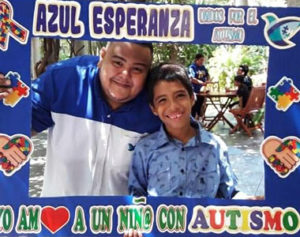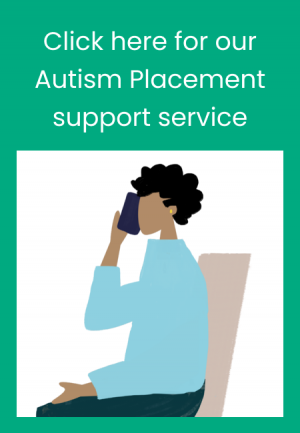This article on how autism is supported in Nicaragua as opposed to the UK is offered by Dr Arturo Osorio of the Universidad Nacional Autónoma de Nicaragua
For most of its history, autism has been poorly understanded, diagnosed and treated with condescension or fear. In recent years, this misconception has changed and is being challenged in less developed areas. Some countries have struggled to catch up with the rest of the world with its autism treatment, taking Nicaragua as an example; comparing its response with that of the UK can show where Nicaragua has been failing.
What Does It Mean to be Autistic in the UK?
In the UK, autism is treated with the respect and dignity that it deserves, children and adults with autism or who are on the spectrum can receive support from various sources. While having autism doesn’t necessarily automatically qualify you for government benefits, options are available. For example, Autism.org in the UK connects people with autism to a variety of different support groups. And LivingAutism.com spreads understanding about autism through its training programmes and helps autistic children and adults find suitable services for their needs.
These national programmes help provide funds for people with autism or caregivers of young children with this condition. They vary in their benefits and use a variety of testing techniques for qualification. A few of these options include:
- Disability Living Allowance – Disability Living Allowance or DLA may be claimed for young children who have a health condition or disability that impacts their development. Different rates are available for children, depending on the intensity of their autism and their care needs.
- Carer’s Allowance – This allowance is available for families who qualify for DLA awards. It’s paid to caregivers who don’t make over £128 per week. They must also spend at least 35 hours per week caring for their child. This payment helps parents who cannot work a full-time job due to their child’s care.
- Child Tax Credit and Working Tax Credit – If you qualify for DLA while taking care of your child with autism, you may receive various types of child tax credits and working tax credits. These credits are being replaced by Universal Credit in the future, though.
- Housing Benefits – Parents with a low income and savings under £16,000 struggling to pay their mortgage due to autism (either caring for their child or their condition) may get it paid using this unique benefit.
- Universal Credit – This credit system follows a means-tested option, meaning that household income and means of living are tested before receiving benefits. It supports children and adults with autism and can help make treatment and overall life easier to handle.
There are many societies in England and throughout the UK that support autistic individuals and families. Many of these can be found at Autism Links.co.uk. Local support systems also help many with autism throughout the UK. These include church-or- religion-based programmes and non-secular options. These vary based on where you live and have a variety of different qualifications.
This support system is quite different from that in Nicaragua. Long recognized as one of the poorest countries in Central America, Nicaragua has struggled to provide mental health care for its residents. As recently as 15 years ago, autism was treated quite cruelly. Thankfully, this issue is becoming less prominent as more people step up to provide higher-quality care throughout the nation.
What Does It Mean to be Autistic in Nicaragua?
Nicaragua’s history with mental health and intellectual disabilities is mixed. Reports state that as recently as 15 years ago, many people with conditions like autism were feared instead of adequately treated. According to many reports, a poor understanding of these conditions caused individuals with autism to be treated as “monsters” and locked away with minimal support.
This situation mirrors that of the UK and USA during the 50s and 60s. During these times, individuals with intellectual disabilities were often relegated to large institutions where they received abysmal support and were often treated as little more than animals; abuse was not uncommon, including physical, emotional, and even sexual criminal actions.
Since then, much progress has been made in this area. People with autism and other conditions are not institutionally abused and locked up anymore, advocates for autism and intellectual disabilities (mainly international non profit organizations) have raised awareness of these conditions and helped educate many in the nation.
Teletón has been one of the biggest positive forces of change in this field, this annual appeal takes place on radio and television every year to raise money for rehabilitation centers for those with autism and other disabilities. They’ve continued to combat misconceptions, such as the traditional belief that disabilities like autism were the “fault” of the mother.
Other programmes, like Early Childhood, help identify children with disabilities and provide care for their needs. People who work for this program often walk for hours on foot every day to provide care, as they receive such little funding, in many cases, help must come from outside sources, as the Nicaraguan government struggles to provide enough funding for care programmes.
Blue Hope, for example, is an international program designed to help children with autism in Nicaragua. They receive no support from the country’s government but work to support families struggling with autism and other disabilities. This help includes financial aid (if possible) and education for struggling parents. Such small steps help to adjust autism misconceptions in Nicaragua slowly.
Positive Change Takes Time
Thankfully, progress is occurring throughout Nicaragua and the rest of Central America in autism care. Though there may be plenty of room for improvement, it is clear that the country is moving in the right direction. Supporting positive change requires understanding the unique challenges that face countries like Nicaragua. Then, it is crucial to support their independence by teaching them support systems and providing them with the ability to execute each plan themselves.
Sources
autism.org.uk – Support for Autism
livingautism.com- Autism services, advice and support
autism.org.uk – Benefits You Can Get for Autistic Children
nhs.uk – Where to Get Support
pri.org – After Being Literally Caged Up, Disabled Nicaraguans are Finding Acceptance
sunshinebehavioralhealth.com – Autism and Addiction
ylai.lab.prod.getsusinfo.com – Supporting and Empowering Children With Autism in Nicaragua
education.tamu.edu – Former Student Impacts Children With Disabilities in Nicaragua
_________________________________________________________________________________
If you need help looking for services for an individual with an autism spectrum condition, we will do our best to help. Click below for the Autism Placement Support Service.





